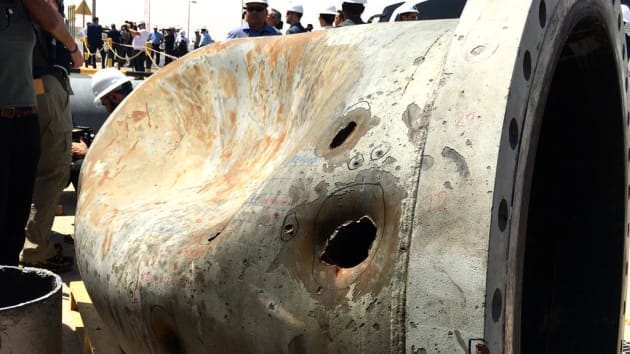
The Saudi oil supply was dramatically threatened and reduced after a drone attack. Photo courtesy of CNBC
By Airielle Lowe
Missile attacks released by drones descended upon two major oil facilities in Saudi Arabia on Sept. 14, further heightening tensions in the Middle East as the blame falls on Iran.
Following the attack on the world’s top exporter of oil, President Donald Trump released a tweet last week stating, “There is reason to believe that we know the culprit,” and later claimed that the United States is “locked and loaded” depending on verification that Iran is to blame.
Tensions between the United States and Iran have reportedly grown under the Trump administration; beginning with his decision to pull the U.S. out of the Iran nuclear deal negotiated by President Obama in May of 2018. It is also worth noting that this is not the first time President Trump has issued threats towards Iran.
In June he tweeted “Any attack by Iran on anything American will be met with great and overwhelming force,” adding, “In some areas, overwhelming will mean obliteration.”
According to BBC News, unnamed senior officials have reportedly informed American media that there is evidence that suggests the strikes originated in the south of Iran.
Though Iran has denied any involvement in the attacks, the head of Iran’s Revolutionary Guard in Iran, Maj Gen Hossein Salami, warned that the country’s “readiness to respond to any aggression is definitive,” reported BBC News.
In the midst of the back-and-forth between Iran, the U.S. and Saudi Arabia, Iranian-backed Houthi rebels in Yemen have claimed responsibility for the attack.
Yahya Saree, a spokesman for the group read in a statement on the rebels’ Al Masirah TV, “these attacks are our right and we warn the Saudis that our targets will keep expanding.”
The Houthis are currently in a civil war with the Saudi-led coalition, a conflict that has left nearly 100,000 dead. But just exactly who are these rebels and why are they attacking Saudi Arabia?
The Houthi movement was founded in the 1990s in opposition to Saudi Arabia’s religious influence. In 2015 they managed to seize Sana’a, the capital of Yemen and overthrew the president of the time, Abd Rabbu Mansour Hadi.
Despite the president’s previously mentioned threats, lawmakers were not briefed by the Trump administration about his intention to intervene on behalf of Saudi Arabia prior to these public statements.
Republican Senator Lindsey Graham (D-SC) stated, “I would urge the State Department and the [Department of Defense] to come down here and explain to us what’s going on.”
House Speaker Nancy Pelosi has urged her colleagues to oppose potential armed conflicts with Iran. It has been stressed that Congress has not authorized any military action against Iran, and many other lawmakers are actively seeking efforts to avoid conflict, according to ABC news.









